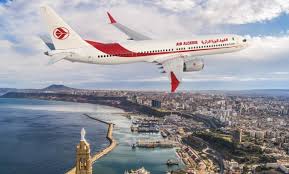
Algeria has announced an ambitious plan to modernize and expand its national airline, Air Algérie, with 34 new aircraft set to join the fleet by 2028.
The move is designed to strengthen the carrier’s regional and international presence, particularly in competition with Royal Air Maroc, which is pursuing its own major expansion strategy.
Speaking on Friday, Air Algérie CEO Hamza Benhamouda said the first deliveries are expected in the last quarter of 2025, with additional aircraft phased in over several years.
According to industry sources, the acquisitions will push the fleet past the symbolic 100-aircraft threshold, boosting capacity for routes to Europe, the Middle East, and Africa. Plans also include a potential expansion of up to 60 further aircraft, reflecting a strategic effort to catch up with regional competitors.
Beyond fleet renewal, the Algerian government views Air Algérie as a key instrument of economic connectivity and international influence. Analysts note that for the airline to fully succeed, these material investments must be accompanied by improvements in service quality, a point frequently highlighted by passengers and aviation experts.
Air Algérie’s expansion comes as Royal Air Maroc (RAM) embarks on a long-term growth project. The Moroccan airline, which began with roughly 50 aircraft, aims to operate nearly 200 planes by 2037, effectively quadrupling its current capacity. This programme includes deliveries from major manufacturers including Airbus, Boeing, and Embraer. RAM has already received five new long-haul aircraft in 2025 and expects ten more by the end of the year, with further deliveries planned for 2026.
The contrasting strategies highlight different approaches to regional dominance. Air Algérie is pursuing rapid fleet modernization to consolidate its base and make up for operational delays, while Royal Air Maroc is taking a measured, long-term approach to establish itself as an intercontinental hub connecting Africa, Europe, and the Americas.
Industry observers say the rivalry underscores the strategic importance of the Maghreb in African aviation, as both carriers aim to assert influence across overlapping markets and elevate the region’s profile in global air transport.



